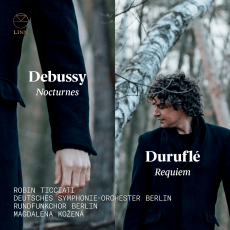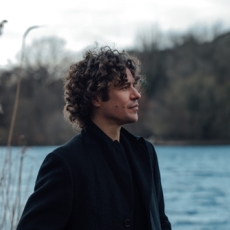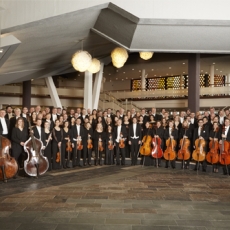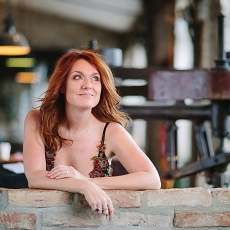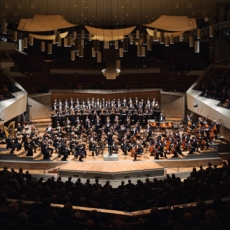Robin Ticciati & DSO Berlin - Debussy: Nocturnes – Duruflé: Requiem - MusicWeb International
The Deutsches Symphonie-Orchester Berlin (DSO Berlin) under its music director Robin Ticciati has turned its attention to another all-French programme, the third of the series featuring mezzo-soprano Magdalena Kožená. Ticciati’s striking programme comprises two masterpieces: Debussy’s Nocturnes, a seminal orchestra work, and one of the most admired settings of the Requiem by Duruflé.
Debussy was inspired to write his triptych Nocturnes after seeing a series of paintings by American artist James McNeill Whistler. Completed some five years after Prélude à l'après-midi d'un faune, his first masterwork, Nocturnes is one of the composer’s best-loved scores. The three movements – Nuages, Fêtes, and Sirènes with its wordless women’s chorus – seem to describe Debussy’s impressions of light, colours and rhythms suggested by clouds, a vision of a festive scene and the sea. Debussy wrote: “The title ‘Nocturnes’ is to be taken here in a more general and above all in a more decorative sense.”
With unerring assurance, Ticciati and his superb Berlin orchestra develop an atmosphere of tranquility and beauty. There are impressive – extraordinary, yet elusive – shifts in orchestral mood and muted colour, which might convincingly evoke the impressionist, nocturnal feel of a Whistler painting. In Sirènes, the performance of the women’s chorus of the Rundfunkchor Berlin is heavy with equanimity and beauty. A masterwork, Nocturnes has been extremely popular in the recording studio, so the wide choice available can be baffling. My favourite recording remains the stunningly atmospheric performance by the Boston Symphony Orchestra under Claudio Abbado recorded in 1970 at Symphony Hall in Boston, remastered on the Deutsche Grammophon ‘Originals’ series. I have had much pleasure from the 1991 account at Masonic Auditorium in Cleveland, performed by Cleveland Orchestra under Pierre Boulez on Deutsche Grammophon. There is an impressive 1962 account by the Philharmonia Orchestra under Carlo Maria Giulini at Kingsway Hall in London. Still sounding mightily, it was chosen by EMI as part of its ‘Great Recordings of the Century’ series. There is also the glowing 1979 Concertgebouw, Amsterdam account with Bernard Haitink conducting the Concertgebouw Orchestra; Philips selected it as one of their 50 Great Recordings. I position the present most worthy recording from Ticciati and the DSO Berlin close to this elevated company.
Duruflé’s Requiem, heavily influenced by Gregorian chant, has characteristics similar to Fauré’s famous Requiem from almost sixty years earlier. Duruflé prepared three different versions of his Requiem. Ticciati is conducting the original 1947 version for full orchestra and organ. (There also is a 1948 arrangement for organ and choir, and later in 1961 an arrangement for soloists and choir with pared down orchestra and organ.) Ticciati does not employ a bass soloist, allocating the part to unison basses.
This is a very sincere performance. Ticciati and his orchestral and choral forces enticingly create a stunning atmosphere of subtle beauty from the first note to the last. My particular favourite movement, the Sanctus (Holy) with such a convincing level of engagement, is extremely moving; it can make the hairs stand up on the back of the neck. In Pie Jesu (Merciful Jesus), renowned mezzo-soprano Magdalena Kožená excels, displaying her slightly dark tone in a controlled, movingly understated performance. There is a noticeable solo cello part expertly played by Valentin Radutiu. Under chorus master Gijs Leenaars, the Rundfunkchor Berlin provide a compelling level of unity and expression combined with sacred consolation and compassion. For some years my principal selection of the Requiem has been the beautifully performed 1959 recording on Erato by Chorale Philippe Caillard et Stéphane Caillat Orchestre de l'Association des Concerts Lamoureux conducted by the composer, with Hélène Bouvier (mezzo-soprano) and Xavier Depraz (bass). Worthy of attention too is the compelling 1985 account on Hyperion, with Matthew Best conducting the Corydon Singers and English Chamber Orchestra with Ann Murray (mezzo-soprano) and Thomas Allen (baritone). In outstanding form, Ticciati and his forces are certainly a match for those accounts.
Linn’s sound engineers, with all their usual expertise, provide satisfying sound. Another bonus is Stephen Walsh’s booklet essay, always an informative and enjoyable read. If the repertoire appeals, there is no reason to hesitate with this exceptional album that enticingly couples two French masterworks.
